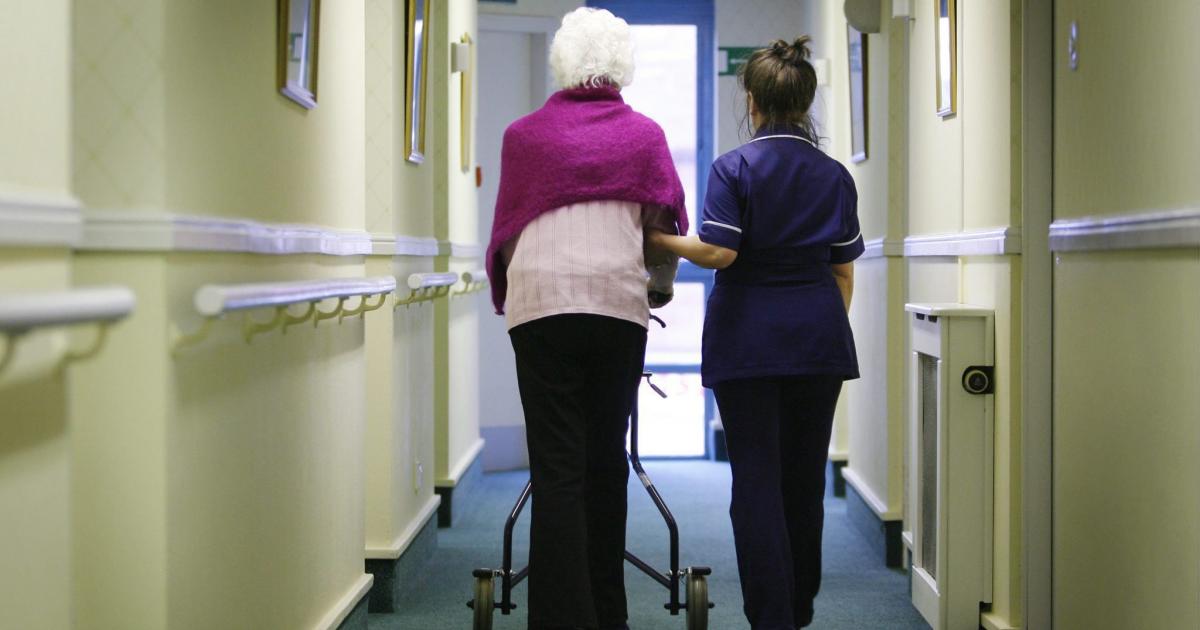It has unveiled systemic problems in the workforce, including chronic staffing constraints, leading to an over reliance on agency employment, which has significantly driven up costs.
The report, which captures the experience of 48 organisations that employ 780 nurses across 234 care home services, revealed that since 2021 the workforce has experienced an “increasingly challenging landscape, with mounting pressures and systemic failures”.
Without urgent action, the report warns the Scottish Government that the future of the health and social care sector is at risk.
Figures published by the Scottish Social Services Council (SSSC) showed the number of registered nurses working in adult social care homes declined by 1,440 between 2013 and 2023 – a 28.2% drop, including a further 0.8% decrease in the last year alone.
The report by Scottish Care has now revealed that 75% of adult social care providers had difficulties filling nursing vacancies, while more than half had nurses who quit the sector to join the NHS.
Read More:
Almost 70% of providers reported that nurses typically exit within their first five years in social care, the report revealed.
Meanwhile, 37% of nurses surveyed reported increased stress levels, while sickness absences was also on the rise, up by 19%.
The report found that pay disparity with the NHS and restrictive immigration polices were “undermining” workforce stability.
The report said: “Pay parity within NHS roles is essential to step attrition and make social care nursing a viable career.”
The report highlights that without urgent action, these issues will continue to impact the continuity of care, hospital discharges and the wider health and social care system.
Scottish Care is demanding the Scottish Government urgently introduce pay parity with NHS roles, and increase funded training specifically for social care.
It comes as Dr Donald Macaskill, chief executive of the organisation, condemned SNP ministers for treating the social care sector as the “Cinderella service” compared to the NHS.
He also accused Health Secretary Neil Gray of a “summer of inactivity” as he argued the sector had repeatedly tried to engage with the government over the crisis.
In an exclusive interview with The Herald last week, Neil Gray said he accepted this accusation, but said the Scottish Government was considering its next steps.
Following the publication of the new workforce report, Dr Macaskill said: “This report shines a stark light on the reality facing social care nurses across Scotland.
Read More:
“For too long, they have been undervalued, underpaid and under supported, despite the skilled, complex and essential care they deliver every single day.
“Unless we address pay inequality with the NHS, invest in proper training and career development, and create fair pathways for international recruitment, we risk losing an irreplaceable workforce.
“The future sustainability of our health services depends on a strong and respected nursing profession in care homes. We cannot afford to ignore this crisis any longer.”
In August, 240 third sector organisations wrote to First Minister John Swinney over the crisis in social care.
The collective warned that the sector was now at an “apocalyptic” state, with 61% of providers at imminent risk of closure.
The letter, published exclusively in The Herald, said staff in social care had been “pushed to breaking point”.
It urged the Scottish Government to urgently intervene amid a “profound crisis”.
The wider NHS is also facing staffing concerns, with official data showing that nursing and midwifery staff in NHS Scotland increased by 60% since the end of last year.
A Scottish Government spokesperson said: “We are committed to making Scotland the best place for nurses and midwives to work with a strong focus on attracting new talent, supporting education, and retaining both staff and students.
“We are determined to tackle the pressures facing the NHS and statistics this week show progress in addressing waiting times. However, we are also clear that many of the external pressures facing our social care sector in particular are a result of UK Government decisions, including increasingly restrictive and hostile migration policies, and increases to National Insurance Contributions which are set to cost the social care sector £84m.”

